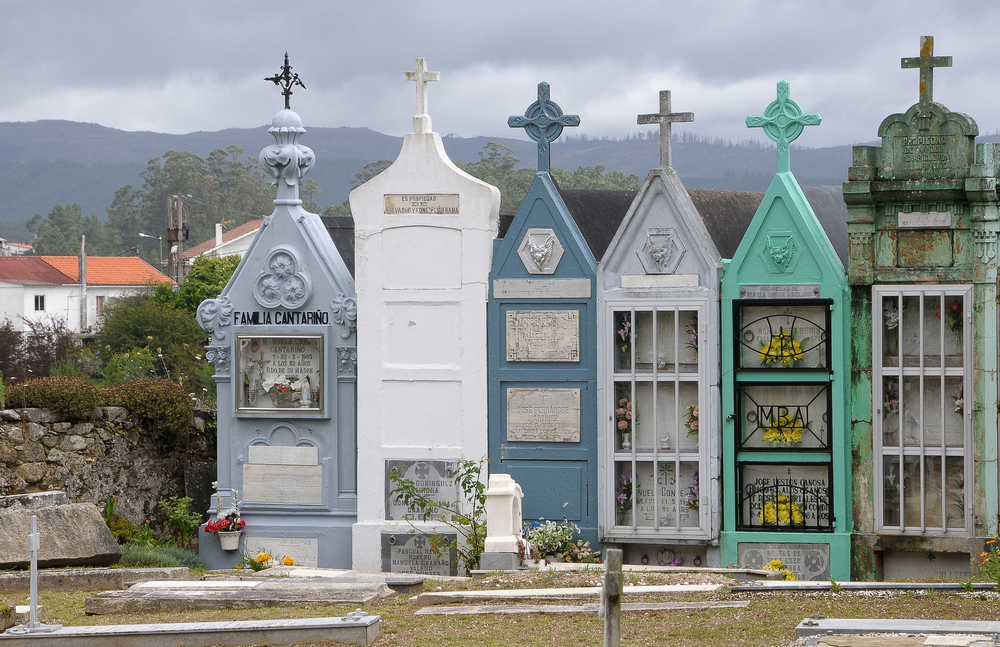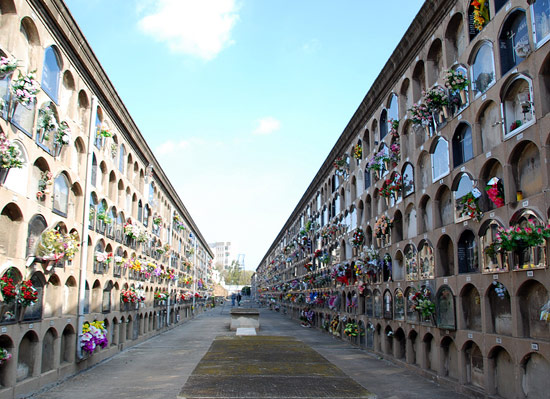Life Stages: Death
Religious Customs
Death is a poignant moment marked by a lot of grieving and mourning. The church plays an important role at the time of death. The person in charge of the parish meets the family to help them prepare the funeral liturgy. A prayer vigil takes place at the funeral home or church, where the entire community gathers with family and friends and prays for the deceased and the bereaved. The main funeral liturgy takes place later.
The dead body is treated with great care and respect, as it is considered a temple of the Holy Spirit. In the case of cremation, the ashes are buried or entombed at a cemetery. If the ashes are buried before the funeral, a “Commemorative Service” may be held. Spaniards plan their funeral ceremonies well in advance.
Death anniversaries are always remembered, and loved ones pay homage by visiting the grave or tomb, lighting candles or incense, and laying flowers on the grave. Tombs in Spain are often above ground and look like cement filing cabinets, with vases fixed on the wall in front of each grave. All Saints’ Day (Todos los Santos) is considered a very important time for remembering the dead and special cakes (panelletes) are sold for this purpose.
The Afterlife
Christians believe in eternal life and the resurrection of the body. The majority of Christians believe in an afterlife of Heaven, a place of freedom from suffering and sin, Hell, where sinners are punished, and Purgatory, in which the soul expiates its unconfessed sins before entering Heaven.
Copyright © 1993—2025 World Trade Press. All rights reserved.

 Spain
Spain 
